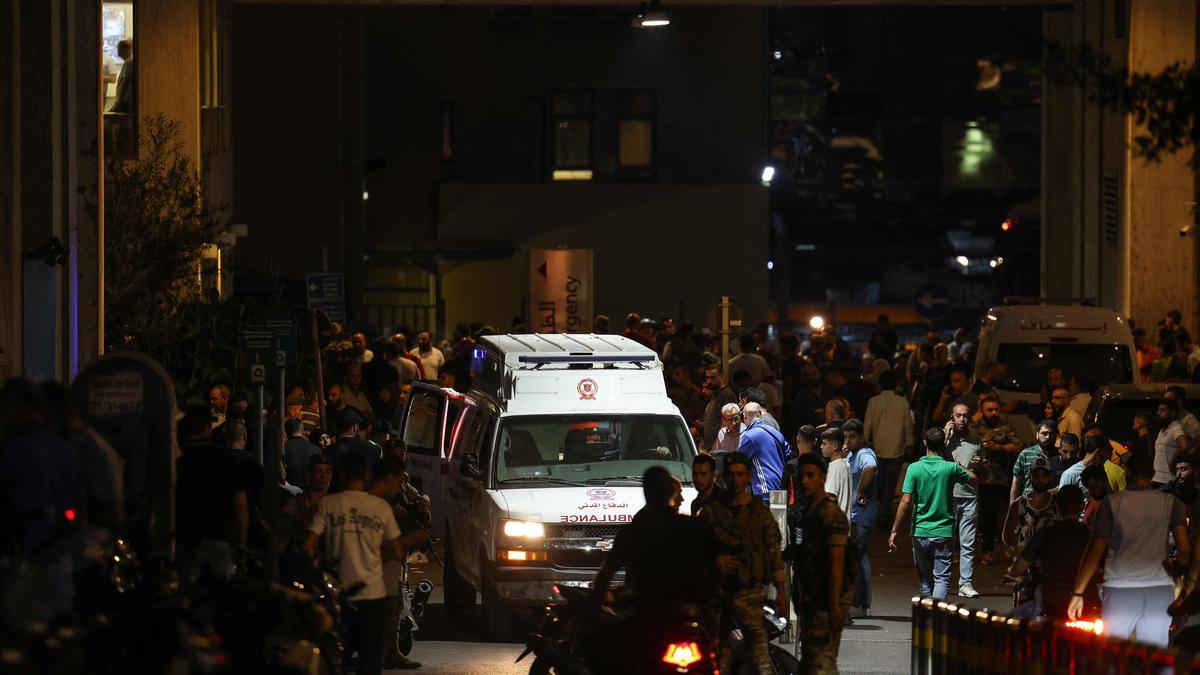On Wednesday, September 18, Lebanon was in shock by a series of explosions involving home solar energy systems and obsolete communication devices such as pagers and walkie-talkies. The blasts, targeting Hezbollah strongholds, mark a sharp escalation in the long-standing conflict between Israel and Hezbollah.
The attacks have not only raised questions about new tactics in modern warfare but have also placed civilians in Lebanon and Israel in grave danger. Thousands of civilians have been forced to flee their homes, and the situation remains highly volatile.
This incident comes as a wake-up call to the very real dangers of new methods that are being used in wars nowadays. Involuntary suicide bombings through hacked devices may become terrifying standards in any future conflicts around the globe.
As people become increasingly dependent on their smartphones and other complementary wearable technology and smart home devices, it is becoming increasingly disturbing how hackers would so readily use these gadgets for nefarious purposes.

Explosions Across Lebanon
The Lebanese National News Agency (NNA) reported several explosions in residential areas across Beirut and southern Lebanon. These incidents were linked to the detonation of solar energy systems and communication devices, particularly pagers and walkie-talkies used by Hezbollah members. The attacks were carried out with a high level of sophistication, leading many to suspect Israeli intelligence agency Mossad as the orchestrator. One of the most alarming aspects of this wave of explosions is the simultaneous targeting of multiple types of devices. In the southern town of Nabatiyeh, fires broke out in 60 homes, damaging cars and motorcycles after the explosions. Similar incidents were reported in other Hezbollah strongholds, and pictures of exploded devices, including fingerprint readers, quickly spread across social media platforms.

Also Read: InternationalLebanon Pager Hack Explosion – Can our Devices Turn Us into Involuntary Suicide Bombers
Injuries and Displacement
Although no deaths were immediately reported from the solar panel explosions, a girl was injured during one of the blasts. In the case of the pagers and walkie-talkies, the toll was much higher. Many Hezbollah members were killed, with over 2,750 people injured. The explosions have forced thousands of civilians to flee from their homes in both northern Israel and southern Lebanon. As missile and drone strikes continue to rain down, the risk of further escalation looms large. Many homes, vehicles, and public spaces have been destroyed or heavily damaged, leaving civilians grappling with the aftermath and searching for safety.
Israel’s Involvement: Sabotage or Defensive Strategy?
While Israel has not officially claimed responsibility for these attacks, the Israeli Defense Minister Yoav Gallant hinted at a shift in military strategy. In a statement to Bloomberg, Gallant spoke of entering a "new phase" in the war against Islamist groups, signaling that Israeli forces were being redeployed to focus on the northern front Lebanon. This development is significant because it suggests Israel is preparing for a potential wider conflict. The precision and scale of the attacks on Hezbollah's communication infrastructure, combined with the timing, seem to indicate that this was not an isolated incident but part of a calculated effort to weaken the group.

Obsolete Technology in Modern War
What makes these explosions even more unusual is the use of obsolete communication technologies like pagers and walkie-talkies, devices that have long been considered relics of the past. For Hezbollah, however, these technologies are still used for internal communication and coordination. The sabotage of these devices demonstrates that even outdated technology can become a battlefield in the modern era. The fact that these small, personal devices were used to target Hezbollah officials and militants shows the lengths to which Israel may be willing to go in this increasingly tech-driven conflict. This latest events in war is concerning because it signifies a move from traditional ground and air combat to more covert, high-tech operations. The sabotage of pagers and walkie-talkies is a prime example of how modern conflicts are fought not only on the battlefield but also through technological means. It raises a question that these attacks, which combines elements of both traditional and cyber warfare, underscores how innovations in technology are being weaponized in ways that were previously unimaginable. While military confrontations have historically focused on physical battles and airstrikes, this latest strategy points toward a future where technology, infrastructure, and even personal devices can become prime targets in the future wars.
Inputs by Agencies
Image Source: Multiple Agencies
Ⓒ Copyright 2024. All Rights Reserved Powered by Vygr Media.
























